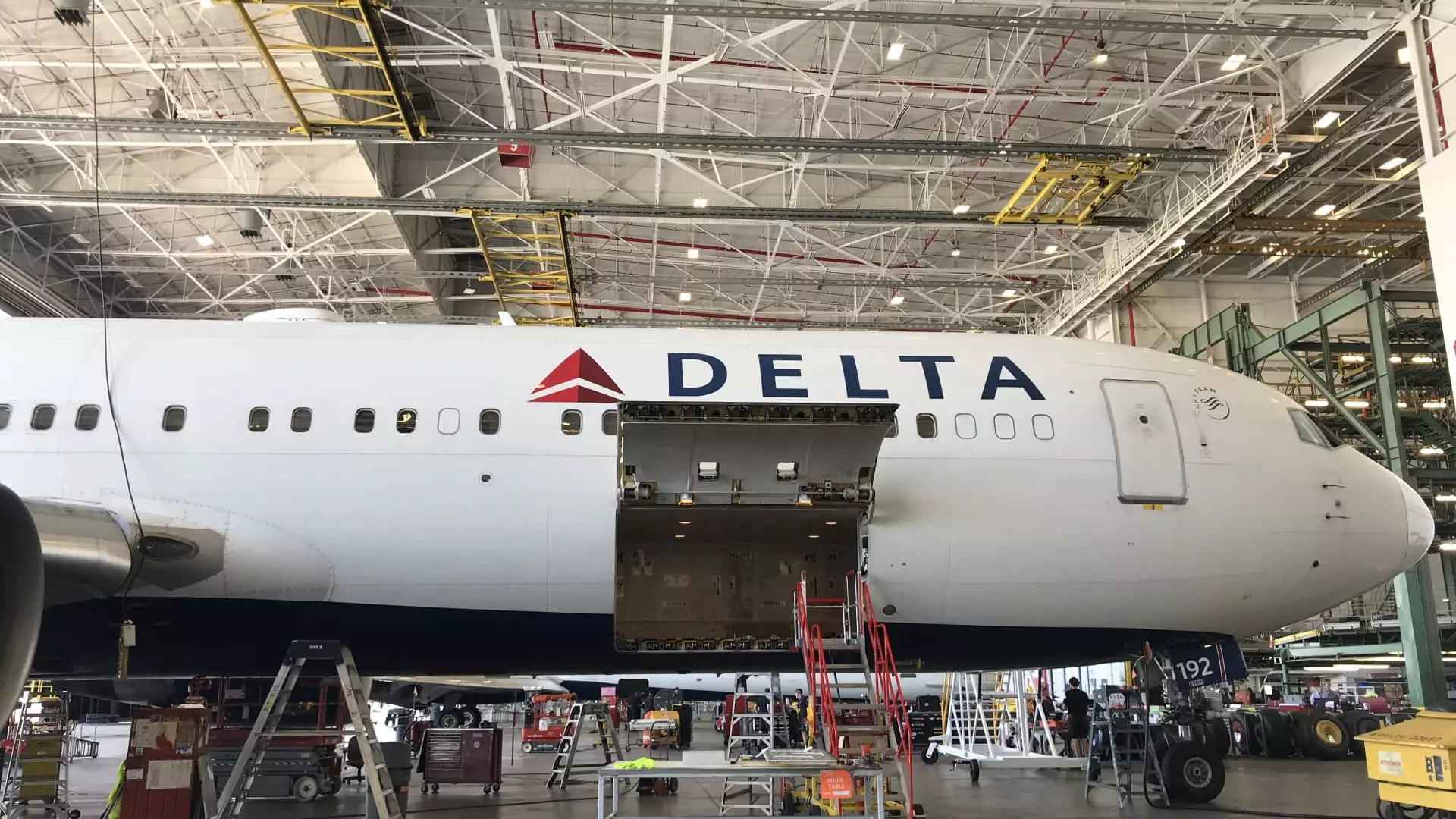Delta Air Lines has positioned itself for a promising fourth quarter of 2023, fueled by strong passenger demand and optimistic projections surrounding holiday bookings. The Atlanta-based airline forecasted adjusted earnings to fall between $1.60 to $1.85 per share. This forecast not only surpasses Wall Street’s anticipated earnings of $1.71 but also shows a significant improvement compared to the $1.28 per share reported during the same quarter last year. As travel continues to rebound, Delta’s ability to navigate fluctuating demand patterns highlights its resilience in the post-pandemic landscape.
Despite the positive outlook, the airline does recognize potential turbulence on the horizon. It anticipates a 1% revenue dip due to decreased travel demand coinciding with the U.S. presidential election scheduled for November 5. CEO Ed Bastian articulated concerns about how upcoming elections may sway consumer confidence, suggesting that discretionary spending could momentarily stall. However, he remained optimistic about holiday travel, noting the current strength in bookings as families and individuals make plans to gather for year-end festivities.
Delta’s third-quarter results demonstrate a blend of resilience and challenges impacting the airline industry’s recovery. The reported adjusted earnings of $1.50 per share, while slightly below the expected $1.52, still represent a notable achievement considering the previous year. Revenue for the quarter reached $14.59 billion, although it fell short of the anticipated $14.67 billion. These figures reveal both the obstacles the airline faces and its efforts to maintain profitability amid ongoing operational disruptions.
An inadvertent setback in the form of a CrowdStrike software outage in July compounded Delta’s challenges, leading to a significant drop in operational efficiency. This incident not only resulted in flight cancellations but also inflicted a staggering $380 million in lost revenue. CEO Bastian emphasized the gravity of this situation, asserting that Delta is pursuing compensation from both CrowdStrike and Microsoft, underscoring the company’s commitment to accountability and resolution in the face of operational hurdles.
Despite the setbacks, Delta’s performance did see an increase, with net income rising 15% year-over-year to $1.27 billion during the period ending September 30. Total revenue also reflected a modest increase of 1% to $15.68 billion, showcasing the airline’s ability to grow even amidst adversity. One noteworthy aspect of Delta’s financial results was the stability in passenger revenue, paired with a surge in premium offerings—such as first-class services—indicating a robust demand for elevated travel experiences.
According to Glen Hauenstein, Delta’s president, the airline industry is gradually moving towards a more balanced supply-demand dynamic. An oversaturated domestic market has previously restrained ticket prices, but the ongoing rationalization of industry supply is expected to benefit Delta as it approaches the final quarter and beyond into 2025. Delta has indicated plans to increase its capacity by 3% to 4% in the fourth quarter, which aligns with broader recovery trends in the travel sector.
As Delta navigates these current challenges, it enters the fourth quarter with a sense of cautious optimism regarding its full-year performance. The airline anticipates adjusted earnings to fall within the range of $6 to $7 per share, excluding the financial impacts of the CrowdStrike incident. This optimistic forecast underscores Delta’s focus on mitigating ongoing operational disruptions while capitalizing on strong travel demand, especially during the holiday season.
Delta Air Lines stands at a pivotal moment in its recovery journey. As the airline addresses the challenges of operational setbacks while leveraging a vibrant holiday travel season, it is evident that Delta remains committed to enhancing its service offerings and expanding its market presence. The resilience demonstrated by the airline serves as a benchmark for the industry, signifying that adaptability and strategic foresight remain essential in navigating the intricate landscape of modern aviation.


Leave a Reply